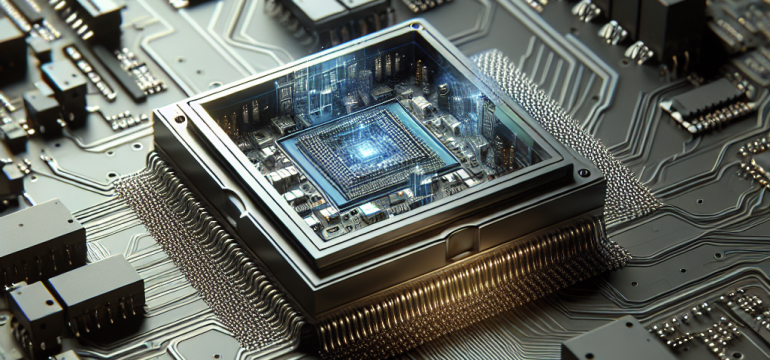PhotonIQ
Elevator Pitch: Imagine if we could accelerate AI’s capabilities while drastically reducing its energy consumption and hardware size. PhotonIQ’s cutting-edge on-chip optical neural networks do just that. With our unique approach to parallel computing in the photonic domain, we’re not just improving AI hardware; we’re redefining its limitations. Join us in making AI more efficient, faster, and accessible to all.
Concept
High-performance, compact on-chip optical neural networks (ONNs) for deep learning applications
Objective
To revolutionize deep learning hardware by developing ultra-compact, energy-efficient, and high-speed photonic computing cores capable of parallel matrix-vector multiplication.
Solution
Using inverse-designed photonic computing cores, we implement on-chip ONNs that leverage the orthogonal and conversion characteristics of waveguide modes for simultaneous parallel computing, achieving high precision and low energy consumption.
Revenue Model
PhotonIQ will sell custom on-chip ONN modules to AI hardware manufacturers, offer consulting for integration into existing systems, and launch a cloud-computing platform utilizing our ONNs for high-speed AI computations.
Target Market
AI hardware manufacturers, data centers, cloud computing services, and sectors requiring high-speed computing like autonomous vehicles, healthcare diagnostics, and financial modeling.
Expansion Plan
Initially focus on collaborations with AI research institutions for refinement, followed by partnerships with AI hardware manufacturers. Eventually, expand to cloud computing services and sector-specific applications.
Potential Challenges
Technical challenges in achieving mass production at low cost, competition from traditional and quantum computing solutions, and ensuring compatibility with existing AI systems.
Customer Problem
Current deep learning hardware is either too bulky, energy-inefficient, or cannot meet the growing demands for speed and precision in AI applications.
Regulatory and Ethical Issues
Compliance with international standards for electronic devices, ensuring data privacy in cloud-based applications, and navigating AI ethics such as bias and decision-making transparency.
Disruptiveness
PhotonIQ’s technology allows for miniaturization and speed improvements unattainable by traditional electronic or other photonic solutions, potentially making it the core technology for future AI hardware.
Check out our related research summary: here.


Leave a Reply